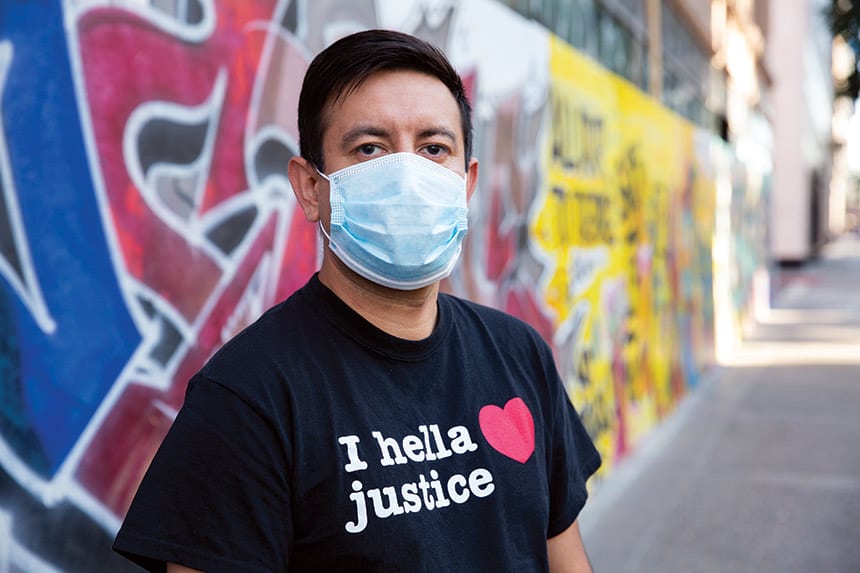
A longtime lifeline for low-income people who need critical legal services, the East Bay Community Law Center quickly found new advocacy angles when COVID-19 gripped the region.
Though forced to close its office, EBCLC took on new clients and brought new proposals to state and local governments. Within weeks, the center pushed for eviction moratoriums and better safety measures for the unhoused; assisted students impacted by widespread school closures; helped small businesses access federal aid; and worked to protect public benefits.
EBCLC also made urgent requests to government leaders to stop towing cars, ticketing people for failing to appear in court, and garnishing wages.
As the pandemic illuminates how low-income residents are mistreated, center leaders are prodding public officials to rethink ideas that had been politically untenable. While Executive Director Zoë Polk laments COVID-19’s “breathtaking devastation,” she sees an opportunity to reform how existing systems have failed EBCLC’s clients.
“We’re a systems-change organization, and right now we’re asking ourselves what it will take to change the systems that have purposefully disenfranchised people of color — making the impacts of the pandemic and the recession all the more acute for those client communities,” she says. “Prosecuting hundreds of evictions a day wasn’t healthy before this health crisis, and we want to send the message that we won’t go back to that system once the courts reopen. Our collective health is bound up in our seizing this moment for change.”
Each year, more than 100 Berkeley Law students help EBCLC provide assistance in eight areas, including immigration and education advocacy — both of which were affected by COVID-19.
Court closures canceled hearings, created problems for immigrants with juvenile visa eligibility, and complicated access to state and federal relief. When schools shut down, students of color were disproportionately affected by the lack of technology, instruction, and communication from teachers and principals.
The center asked Gov. Gavin Newsom for a moratorium on expulsions, which continued even as the closures forced school districts to stop offering other services. EBCLC students dug through local districts’ distance-learning plans to examine their policies for supporting vulnerable students.
EBCLC Education Advocacy Clinic Interim Director Oscar Lopez says it’s vital to give Black and brown students and their families a voice amid looming budget cuts and the stress of reopening schools.
“What this situation has really made clear is that unfortunately there are still a lot of gaps in our education system, and right now they’re on full display,” he says.
—Gwyneth K. Shaw